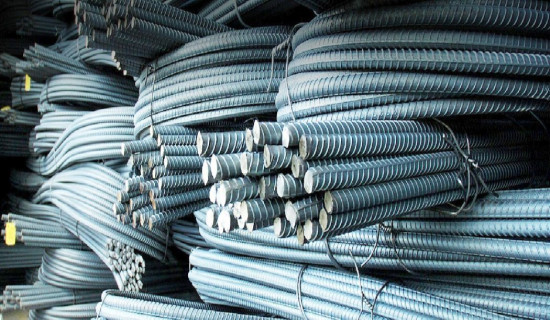- Saturday, 25 May 2024
Foreign returnee youth producing organic manure
By Our Correspondent,Urlabari, Feb. 28: Foreign returnee Rajiv Khadka of Urlabari Municipality-9, in Morang, has brought an organic manure factory into operation in his hometown.
Khadka, who returned to Nepal in 2019 after working in Dubai, Qatar and Kuwait for 16 years initially started an animal husbandry by registering a firm ‘Aama Agriculture Firm’. He returned home by giving up the monthly income of Rs. 650,000 there.
After coming to Nepal, Khadka, who had completed a study on Health, Safety and Environment (HSE) from Dubai, was invited by Nepali companies for a job, but he started a cattle farm with the aspiration of bringing about an agricultural revolution.
He invested the money he earned in the construction of sheds and the purchase of cows and goats. The firm, which started in 2020, could not make a profit so far. There are 56 Boer goats and 16 cows, including five milking ones on his farm.
"There was no loss but there was no profit as well, so I started an organic manure factory using cows and goat’s dung. I have invested about Rs. 8.5 million for the industry which started seven months ago,” he said.
The Ministry of Agriculture of Koshi Province, Agricultural Knowledge Centre, Morang has given a subsidy of Rs. 5 million, while Khadka has to invest Rs. 3.5 million by himself.
Khadka said that the work of manufacturing organic manure has given satisfactory results. He said he sold around 18 tonnes of manure so far. The manure is currently being sold at Rs. 38 per kg, he said. He said that a kg of manure could be sold at Rs. 30 per kg if he could invest around Rs. 10 million for the factory. The Urlabari Municipality has already signed an agreement to purchase 25 tonnes of organic manure, while proposals from the Ministry of Agriculture, Koshi Province and Madhes Province have also been received.
Nar Bahadur Moktan, Ward chairman of Urlabari Municiplaity-9, said that the municipality would purchase it to provide manure to farmers at a subsidised rate.
It has been proven that this manure can make nurseries, vegetable cultivation and fruit cultivation free from chemical fertilisers in one year. It contains two per cent nitrogen, 2.78 per cent potassium, 3 per cent phosphorus, 21 per cent organic carbon and pH level of 7.7 per cent.
Khadka said that around 10,000 kg of manure can be produced daily if raw materials could be managed. However, only 4,000-5,000 kilograms of manure is being produced currently. “There is no manpower to work in the village. I am working with the help of my wife and 10 full-time workers,” he said.

















